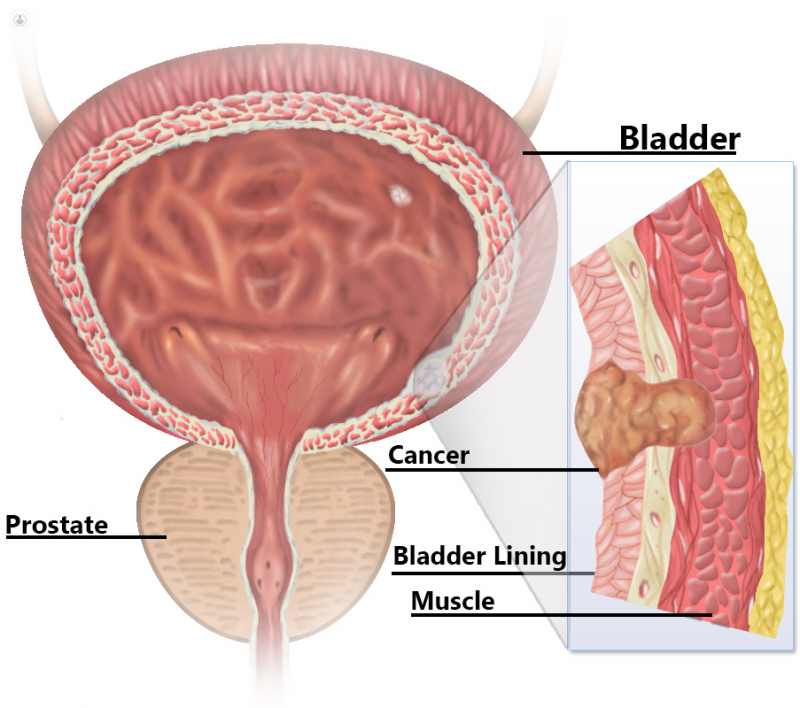



What is bladder cancer?
Bladder cancer is a relatively common type of cancer, which involves the growth of abnormal tissue (a tumour) in the bladder tissue. There are two types:
- Non-muscle invasive bladder cancer – the most common type, in which the cancerous cells are contained within the tissue that lines the bladder. Fatalities from this kind of bladder cancer are uncommon.
- Muscle invasive bladder cancer – cancerous cells spread beyond the lining of the bladder and into the bladder muscle that surrounds it. This type is less common but more serious, as it increases the chance that the cancer will spread to other parts of the body (metastasis).
What are the symptoms of bladder cancer?
Bladder cancer can cause the following symptoms:
- Blood in the urine (haematuria) – the most common symptom
- Frequent urination
- Sudden urge to urinate
- Burning sensation when urinating
In some more advanced cancers, the patient may also experience:
- Back pain
- Pelvic pain
- Unintentional weight loss
- Swelling in the legs
If you are experiencing urinary symptoms, you should consult your doctor or a specialist.
Causes of bladder cancer
It isn’t always clear what causes cancer, but the following factors, among others, are thought to increase the risk of bladder tumours:
- Smoking – the leading factor seems to be tobacco, which contains carcinogenic chemicals.
- Exposure to chemicals – certain industrial chemicals, such as aniline dyes and xenylamine are known to increase the risk of bladder cancer.
- Past radiation exposure – this includes radiotherapy used to treat previous cancer, such as in the bowel.
- Long-term or repeated irritation or urinary tract infections.
Can bladder cancer be prevented?
There is no guaranteed way to prevent cancer, but taking precautions such as not smoking, avoiding exposure to chemicals and radiation, and maintaining a healthy lifestyle can help to reduce the chances that bladder cancer will develop.
What is the treatment?
Once diagnosed, bladder cancer is treated by a multidisciplinary team, which may include a urologist, a pathologist, a clinical oncologist, and a radiologist, among others.
Depending on the stage of the cancer and the risk it poses to the patient, one or more of the following treatments may be recommended, although each case is different:
- Transurethral resection of a bladder tumour (TURBT)
- Chemotherapy
- Cystectomy (surgery to remove the bladder)
- Radiotherapy